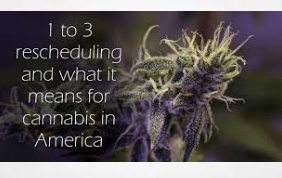
On Tuesday, May 24, the Rhode Island General Assembly passed legislation legalizing the recreational use of marijuana. The bill will become law upon the signature of Governor Dan McKee, which is expected. Recreational cannabis could be available for public sale in Rhode Island as soon as late 2022. For Rhode Island employers, this new legislation creates some immediate challenges, and also provides some key protections. Employers will need to move quickly to implement policies and procedures, and to educate their workforce.
First and foremost, the law makes clear that employers do not have to tolerate the use or possession of marijuana in the workplace, or anyone working under the influence of marijuana. Those aspects of the statute apply with equal force to employees working remotely, outside of their employer’s place of business. Employers are free to impose discipline, including termination, on employees who violate workplace policies on marijuana use or who work while under the influence of cannabis.
Employers may not take any disciplinary action against employees solely for their private, lawful use of cannabis outside the workplace, but there are two important exceptions to this general rule. First, if the employer is a federal contractor and is required by the terms of any applicable federal contract or regulation to prohibit the use of marijuana by its workforce, the employer can impose necessary limitations on its employees if doing so is necessary to protect the benefit of a federal contract or license. Employers working pursuant to federal contracts or licenses will need to review all such requirements and implement such policies with their employees promptly.
Second, if an employee’s job involves what the statute calls “work that is hazardous, dangerous or essential to public welfare and safety,” then the employer can implement policies that prohibit the use or consumption of cannabis by an employee for twenty-four (24) hours prior to a work shift or assignment. The statute itemizes certain types of work included in this provision and it includes the operators of aircraft, commercial vehicles, school buses and public transportation, as well as first responders and emergency and medical personnel. It also includes any employees who operate heavy equipment or machinery, meaning that manufacturing and construction employers can impose and enforce policies prohibiting certain employees from using cannabis products for 24 hours prior to their work, even when that involves otherwise private conduct. Detecting violations of any such policy may be difficult, but the mere existence of the policy, and the threat of termination for any violation, could provide strong disincentives for such employees.
Of course, proving that an employee is under the influence of marijuana at work continues to present challenges. There are still no reliable testing protocols that can effectively test for episodic impairment in the same way that breathalyzers and other tests can detect the influence of alcohol. So, employers will often be left to rely on subjective factors such as appearance, smell, behavior and performance. Employers should also make clear to all workers in critical safety situations that if they do not feel safe working in proximity to other employees who they believe are under the influence of marijuana in the workplace, they should express those concerns.
As this new legislation goes into effect, employers should be reviewing and updating their policies, and should engage in educational efforts in the workforce to emphasize their expectations, their employees’ rights and obligations, and the importance of reporting for work in a condition that is fit for duty. Employers with workers in safety-sensitive positions, or with workplace areas where safety is critical, should continue to emphasize the importance of workplace safety for all, and should communicate a zero-tolerance policy on any employee working under the influence in a way that would jeopardize the safety of others, or of the workplace.
The growing prevalence of generally legalized marijuana in society presents unique challenges in workplace environments, and employers have to be ready to implement and enforce the necessary policies and procedures, and need to communicate their expectations and rules to their employees clearly and frequently. Employers should also revisit any existing policies and procedures relating to authorized medical marijuana cardholders.
Source: https://www.jdsupra.com/legalnews/legalized-marijuana-in-rhode-island-6077001/


















